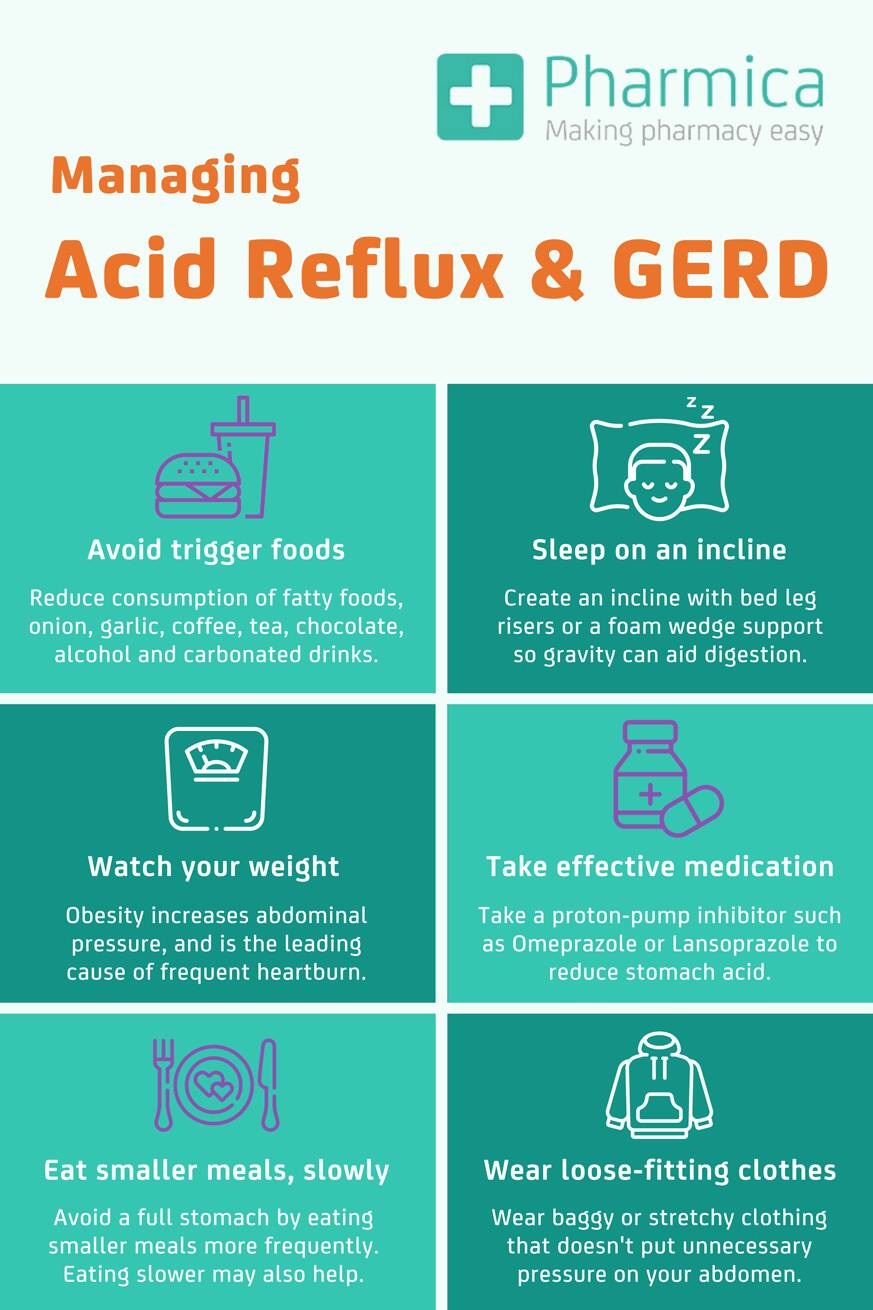Managing Acid Reflux and GORD
Try these tips for relieving painful acid reflux and GORD symptoms.
Updated: Tuesday 19 December 2023

Risk factors for acid reflux, GORD and heartburn
- Being obese or overweight
- Eating or snacking just before going to sleep
- Bending over or lying down after eating
- Drinking beverages such as alcohol, tea, coffee, or carbonated drinks
- Smoking
- Having hiatal hernia
- Being pregnant
- Exercising infrequently
- Eating foods that are acidic, fatty or spicy, such as citrus fruits, chocolate and cheese
- Eating large meal portions
- Having a high intake of table salt
- Having a low fibre diet
Treating acid reflux and GORD
Acid reflux and gastro-oesophageal reflux disease (GORD) can be prevented with use of clinically proven acid reflux medication. Prescription treatments such as Omeprazole, Lansoprazole and Pantoprazole, are regarded as the most effective long term solutions to over-the-counter acid reflux treatments; especially when it comes to prevention. These prescription acid reflux medications are in the class of medicines known as ‘proton pump inhibitors’ (PPIs), and they work by disrupting the final step in the process of stomach acid secretion. PPIs inhibit the gastric proton pump responsible for producing stomach acid, helping to alleviate acid reflux for extended periods of time if taken regularly.
In addition to using clinically proven acid reflux medication, lifestyle changes can also be made to address some of the common risk factors. Combining lifestyle changes with treatment can have a beneficial synergistic effect when it comes to treating acid reflux symptoms.
Treating heartburn
Heartburn is one of the most common symptoms of acid reflux and, as the name suggests, it can be uncomfortable or painful in the moment. Thankfully treatments containing antacids, such as Gaviscon Tablets, Gaviscon Liquid and Gaviscon Sachets are all effective at providing rapid relief from heartburn and indigestion. They work to neutralise stomach acid to reduce the pain and discomfort caused by acid reflux. Whilst these treatments are great at reducing the immediate discomfort, they won’t stop acid reflux occurring in future, so prescription acid reflux medication like those mentioned above are recommended for effective prevention.
Written by: Toby Watson
Pharmica Medical Writer
Toby (BSc) is an experienced medical writer, producing educational articles on many areas of health including sexual health, fitness, nutrition and mental health.
He particularly enjoys debunking misconceptions around heath conditions and their treatments, researching each topic in detail and writing easily-accessible content.
Find out more about how we ensure the accuracy of our content with our content guidelines.